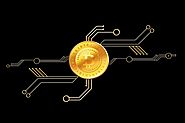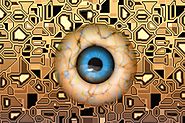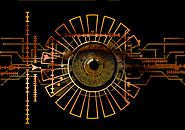-
About
- About Listly
- Community & Support
- Howto
- Chrome Extension
- Bookmarklet
- WordPress Plugin
- Listly Premium
- Privacy
- Terms
- DMCA Copyright
- © 2010-2025 Boomy Labs


 Phil Siarri
Phil Siarri
Listly by Phil Siarri
A list of major developments in technology and science throughout the year.

Bitcoin is everywhere. The cryptocurrency — called such because of the encryption that takes place when units of it are transacted or “mined” — was until recently known for illicit drug transactions. Still, it claimed a devoted fanbase from its creation in 2009 up to its explosion into the mainstream in 2017 — itself a result of a perfect storm of political and financial disasters that helped propel bitcoin to stardom.
All of which is to say it’s been an intense year for bitcoin’s value. Cryptocurrency value tracker Coindesk places the value of one bitcoin on January 1, 2017, at the price of $997.69. On December 16 of the same year, it reached $19,343, a near-2,000 percent increase in value. Had you converted $60,000 into bitcoins at the start of the year, they would now be worth more than $1 million. Of course, actually converting large sums of bitcoin, or btc for short, into cold hard cash, can be tough.
Here’s a brief look back at bitcoin’s incredible year.

"AI is like the Wild West right now," Tim Leland, Qualcomm's head of graphics, told me earlier this month when the company unveiled its latest premium mobile chipset. The Snapdragon 845 was designed to handle AI computing tasks better. It's the latest product of the tech industry's obsession with artificial intelligence. No company wants to be left behind, and whether it's by optimizing their hardware for AI processing or using machine learning to speed up tasks, every major brand has invested heavily in artificial intelligence. But even though AI permeated all aspects of our lives in 2017, the revolution is only just beginning.

"CRISPR technologies have made way for a wide variety of life-saving techniques within the last few years. Recently, a Japanese researcher debuted a film that shows, in real-time, CRISPR editing DNA."

"Yesterday, FCC chairman Ajit Pai successfully led a vote to repeal the Open Internet Order, effectively killing net neutrality rules. The full order hasn’t been released, but advocacy groups are already preparing for the fight to defend a neutral internet once Title II is repealed. Passing net neutrality protections in 2015 was relatively straightforward, but getting those protections back requires going through every potential legal avenue. Meanwhile, ISPs will be testing their ability to control internet traffic — possibly in very blatant ways."

The internet ruins everything — even end-of-year listicles.
What used to be a generally light-hearted column about the most outrageous corrections issued by media organizations over the past twelve months (see our lists for 2013, 2014, 2015 and 2016) has to switch gears significantly this year.
One year ago, Donald Trump started calling media reports he disagreed with “fake news” — regardless of whether they were inaccurate or not. He hasn’t stopped. The acrimony reached a peak when Washington Post reporter Dave Weigel tweeted an inaccurate photo, apologized and was publicly blasted by the president on Twitter, who then asked for his firing.
Two things can be true at the same time. Journalists screw up — often. And we have a responsibility to do better. At the same time, quality journalism is geared towards reaching the truth. We cross-check sources. We fact-check claims. We correct our mistakes, as the vast collection of examples below shows. Few other professions are as wedded to corrections as ours is. As a former fact-checker, I can count on the fingers of one hand the number of times a politician publicly corrected a false claim.

The WannaCry ransomware attack infected about 300,000 computers in 150 countries in May. North Korea has labeled the US accusation a "grave political provocation."

"The virtual reality revolution continues at a pace, with shipments topping 1 million in a quarter for the first time. For Q3 2017, industry analyst Canalys states that Sony led the way with 490,000 shipments of its PlayStation VR headset, followed by Facebook’s Oculus Rift device with 210,00 shipments and HTC’s Vive headset in third place with 160,000 shipments.
That combined 860,000 makes up 86 percent of the market, with other (often smartphone powered headsets) such as Samsung’s Gear VR and Google’s Daydream range making up the rest."

"The iPhone X signals new generations of ultra-powerful wearable devices, even while Apple’s moves in wearables and cloud/AI computing hint that at least some of the tasks we once used computers for will become completely ambient and virtual."

The biggest lesson consumers learned this year is that your data is probably not safe. 2017 was the year of the hack.
Throughout the year, company after company disclosed data breach after data breach. Some had email addresses and phone numbers — get ready for more spam robocalls — and others had the really bad stuff like Social Security numbers.
But there is only one winner of the not-at-all coveted Yahoo Finance “company that screwed you the most this year” award: Equifax (EFX).
First off, the amount of people potentially involved was staggering. After a second disclosure of a few more million, the final number stood at up to 145.5 million people. This is three out of every five adults in the U.S.
Making matters worse, the information involved was extremely sensitive. This wasn’t only phone numbers or emails that were stolen, but Social Security numbers. You can’t change 145.5 million Social Security numbers, which means that the use of SSNs as a security measure should be completely cast away — not that it should have ever been anything other than a tool for the Social Security program.
